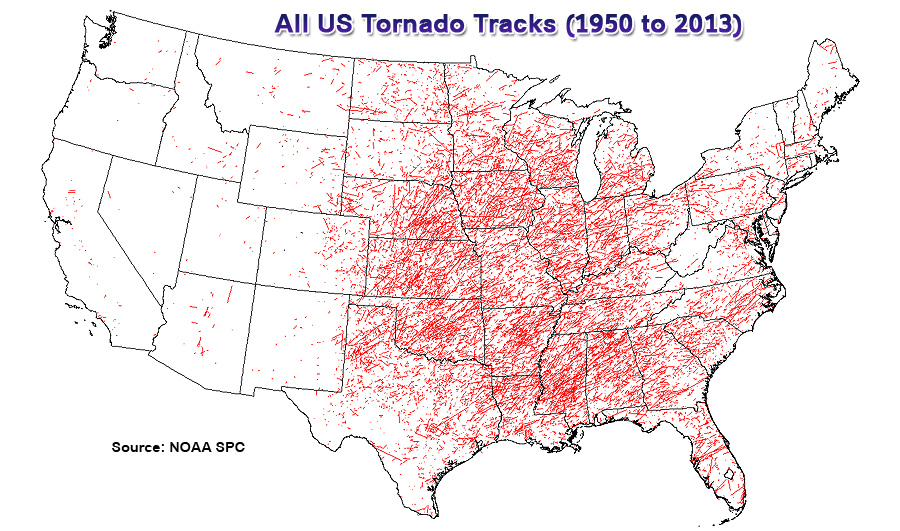Chris Frost
EF0
My favorite of myth of all around here is:
"Tornadoes can't cross the river."
"Tornadoes can't cross the river."
Sounds like more of an old person problem than anything. The minds of older people are pretty concrete...little to nothing will change their minds.
While we're mentioning tornado myths:
-You can't outrun a tornado in a car
-Tornadoes don't hit native American burial grounds
Valley locations would increase the chance of a tornado. Here in New York I'm convinced that around Albany area the tornadoes and thunderstorms are more intense due to Albany being only 42 feet above sea level where the surrounding lands are into the thousands of feet.
My favorite of myth of all around here is:
"Tornadoes can't cross the river."

I live near Des Moines, IA, which is at the confluence of TWO rivers. It's unbelievable how many people in this area believe Des Moines is safe from a tornado because of the rivers. Ironically, I first heard this myth from my mother in 1974, an hour or so before a tornado hit the town of Ankeny, 10 miles North of Des Moines.
I've heard this myth before too; it's also my favorite because it's so arbitrary. I can understand someone coming to believe that "storms always split before they get to this town" because they observe that happening over time - with a little dose of confirmation bias of course. But to decide that the reason tornadoes don't strike a location is "because two rivers come together there" - where does that even come from? You may as well decide that tornadoes can't hit a town whose name begins with (choose your favorite letter).
When I was a young child, I distinctly remember hearing that not only the basement, but specifically the southwest corner of the basement, was the safest place to hide from a tornado. The explained logic was that most tornadoes move in a southwest-to-northeast direction, so debris would be "thrown away from you instead of toward you". Of course this ignores that wind blows toward a tornado, and that tornadoes are tightly rotating windstorms, meaning wind can be blowing in any direction depending on where exactly the tornado is relative to your position.
Another thing I remember hearing is that you should open your doors and all your windows during a tornado, to "equalize the air pressure" and keep the tornado from destroying your house. I suppose this is an artifact from back when tornadoes weren't very well understood. In reality, it is the force of wind that is the agent of damage after all, and not air pressure differential - there is a differential but it is not strong enough to vacuum the roof of your house off of the walls.
Anyone from Michigan should know these 3:
1. We don't get big tornadoes in Michigan.
2. Lake Michigan will kill any storms that cross it.
3. The water will protect us, with a respect to storms changing course near the lakes or dying.
But to decide that the reason tornadoes don't strike a location is "because two rivers come together there" - where does that even come from?
